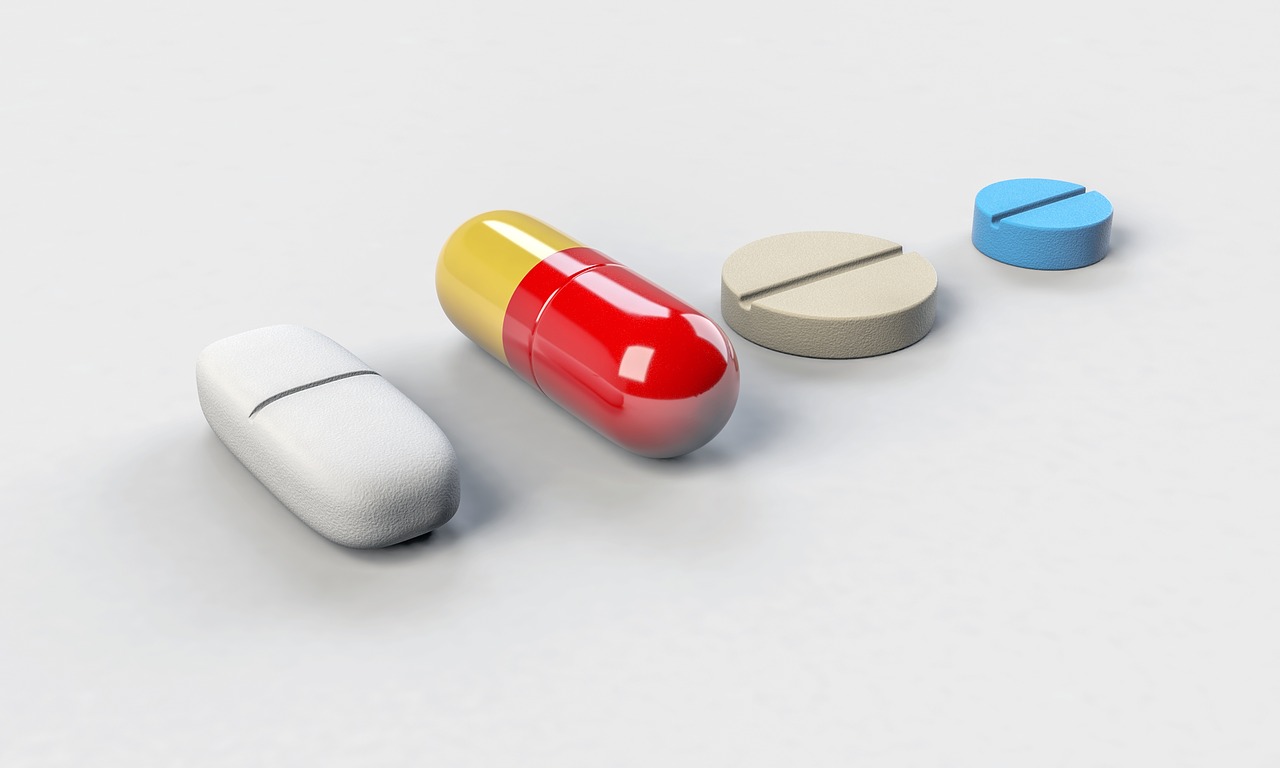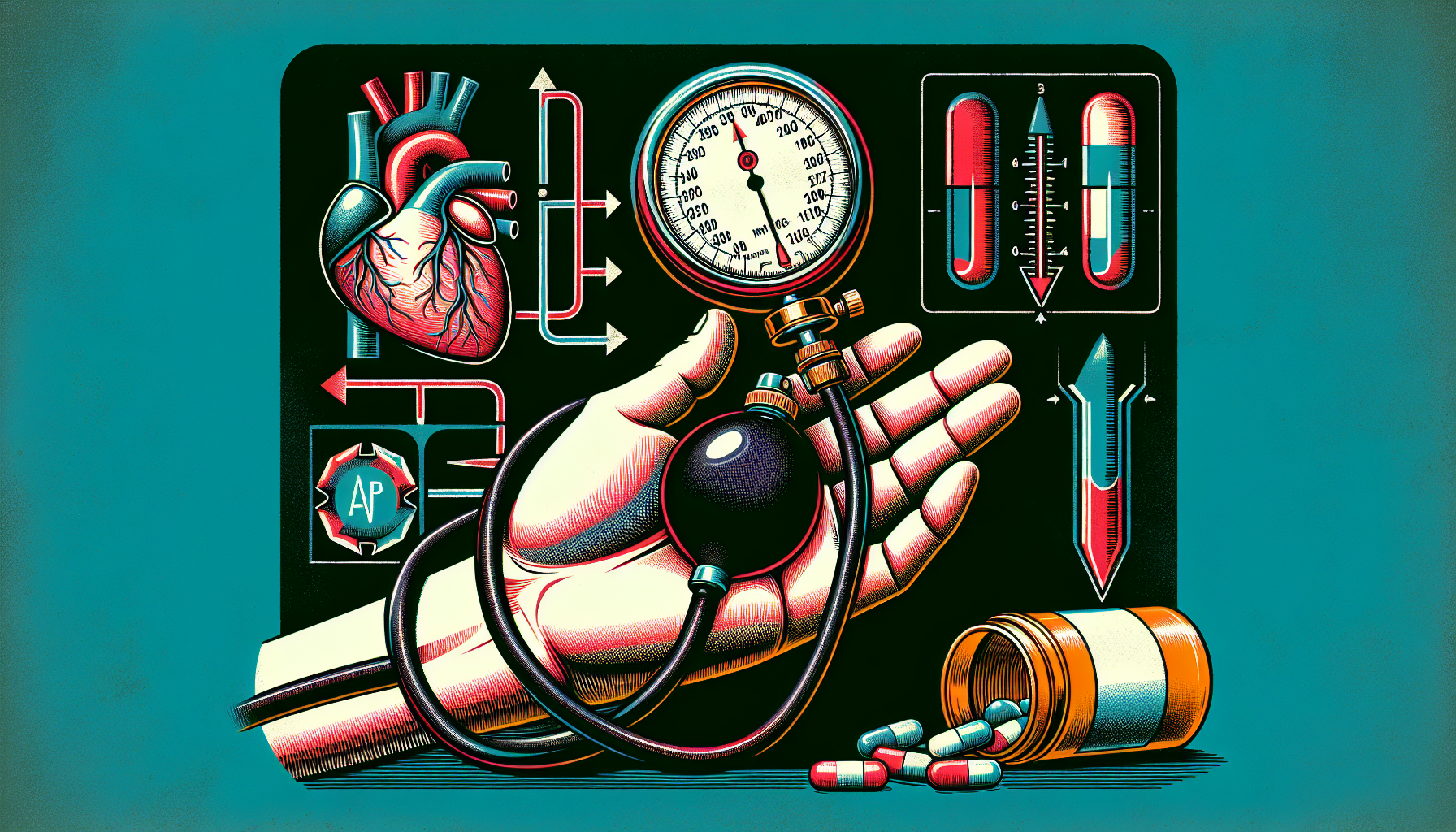Are you curious about how medications for high blood pressure actually work? Well, fear not, because in this article we will unveil the secret behind these medications and how they effectively lower blood pressure. Recent scientific studies have shed light on the intricate mechanisms at play, providing us with valuable insights into this fascinating subject. So, grab a cup of tea, sit back and relax, as we take you on a friendly journey through the inner workings of medications for high blood pressure.
Types of Medications for High Blood Pressure
High blood pressure, also known as hypertension, is a common condition that affects many individuals worldwide. If left untreated, it can lead to serious health complications such as heart attacks and strokes. Fortunately, there are various types of medications available to help manage and control high blood pressure. In this article, we will explore the different classes of medications commonly used for the treatment of hypertension.
Discover the Ultimate Weight Loss Secrets Here!
Diuretics
Diuretics, also known as water pills, are medications that help remove excess fluid and sodium from the body through increased urine production. This action reduces the volume of blood circulating in the blood vessels and ultimately decreases blood pressure. Diuretics are often prescribed as a first-line treatment for hypertension.
Mechanism of Action
By increasing urine production, diuretics reduce the overall volume of fluid in the body, which in turn decreases the workload on the heart and lowers blood pressure. This is achieved by either inhibiting the reabsorption of sodium and chloride in the kidneys (thiazide diuretics) or by blocking the reabsorption of sodium and increasing the excretion of potassium (loop diuretics).
Types of Diuretics
There are different types of diuretics available, including thiazide diuretics, loop diuretics, and potassium-sparing diuretics. Thiazide diuretics, such as hydrochlorothiazide, are commonly prescribed for hypertension and work by inhibiting sodium reabsorption in the kidneys. Loop diuretics, like furosemide, are often used for more severe cases of high blood pressure. Potassium-sparing diuretics, such as spironolactone, help retain potassium while still promoting diuresis.
Side Effects
Common side effects of diuretics include increased urination, electrolyte imbalances (such as low potassium or sodium levels), muscle cramps, and dizziness. It is important to work closely with your healthcare provider and monitor your electrolyte levels during diuretic therapy.
Beta-blockers
Beta-blockers are a class of medications that work by blocking the action of adrenaline and noradrenaline on the beta receptors in the body. By doing so, they reduce the effects of these hormones and lower blood pressure. Beta-blockers are commonly prescribed for managing high blood pressure, as well as other cardiac conditions such as angina and arrhythmias.
Mechanism of Action
By blocking beta receptors, beta-blockers decrease the heart rate and reduce the force of contraction, resulting in a decrease in cardiac output and blood pressure. They also help relax and widen blood vessels, further contributing to the lowering of blood pressure.
Types of Beta-blockers
There are several types of beta-blockers available, including selective and non-selective beta-blockers. Selective beta-blockers primarily target beta-1 receptors, which are predominantly found in the heart. Non-selective beta-blockers, on the other hand, block both beta-1 and beta-2 receptors, which are present in various organs and tissues throughout the body.
Side Effects
Common side effects of beta-blockers include fatigue, dizziness, slow heart rate, and cold hands and feet. Some individuals may also experience sexual dysfunction, depression, or vivid dreams while taking beta-blockers. It is important to consult with your healthcare provider if you experience any concerning side effects.

Click Here for Proven Fat-Burning Strategies!
Angiotensin-converting enzyme (ACE) inhibitors
ACE inhibitors are medications that inhibit the action of an enzyme called angiotensin-converting enzyme. This enzyme plays a role in the production of a hormone called angiotensin II, which causes blood vessels to constrict and promotes fluid retention. By blocking the action of ACE, ACE inhibitors help relax blood vessels and reduce fluid buildup, thus lowering blood pressure.
Mechanism of Action
ACE inhibitors work by preventing the conversion of angiotensin I to angiotensin II. By doing so, they dilate blood vessels and decrease the production of aldosterone, a hormone that promotes fluid retention. This helps reduce the resistance to blood flow and lowers blood pressure.
Side Effects
Common side effects of ACE inhibitors include a dry cough, dizziness, headache, and skin rashes. In rare cases, ACE inhibitors can cause allergic reactions or increase potassium levels in the blood. Regular monitoring of kidney function and electrolyte levels is necessary when taking ACE inhibitors.
Angiotensin II receptor blockers (ARBs)
ARBs are medications that block the action of angiotensin II by binding to its receptors. Like ACE inhibitors, ARBs help relax and widen blood vessels, reducing blood pressure. They are commonly prescribed for individuals who cannot tolerate ACE inhibitors due to side effects such as a dry cough.
Mechanism of Action
By blocking angiotensin II receptors, ARBs prevent the vasoconstrictive effects of this hormone. This leads to the relaxation and dilation of blood vessels, resulting in decreased blood pressure.
Side Effects
Common side effects of ARBs are similar to those of ACE inhibitors and may include dizziness, headache, and fatigue. In rare cases, ARBs can cause an increase in potassium levels or allergic reactions. Regular monitoring of kidney function and electrolytes is important when taking ARBs.

Calcium channel blockers
Calcium channel blockers are medications that inhibit the entry of calcium into smooth muscle cells lining the blood vessels and heart. By doing so, they relax the muscles and widen the blood vessels, reducing blood pressure. Calcium channel blockers are often prescribed as first-line treatment for hypertension, as well as for other conditions such as angina and arrhythmias.
Mechanism of Action
By blocking calcium channels, calcium channel blockers prevent the influx of calcium into smooth muscle cells. This action inhibits muscle contraction, resulting in relaxation of the blood vessels and a decrease in blood pressure. Calcium channel blockers also reduce the force and rate of the heart’s contractions.
Types of Calcium Channel Blockers
There are two main types of calcium channel blockers: dihydropyridines and non-dihydropyridines. Dihydropyridine calcium channel blockers, such as amlodipine, predominantly act on the blood vessels and have a greater vasodilatory effect. Non-dihydropyridine calcium channel blockers, like verapamil and diltiazem, have more pronounced effects on the heart.
Side Effects
Common side effects of calcium channel blockers may include dizziness, flushing, headache, and swollen ankles or feet. In some individuals, constipation or heart rhythm abnormalities may occur. If you experience any concerning side effects, consult with your healthcare provider.
Alpha-blockers
Alpha-blockers are medications that block the action of alpha receptors in the smooth muscle of blood vessels. By doing so, they promote the dilation of blood vessels, resulting in reduced resistance to blood flow and lowered blood pressure. Alpha-blockers are often prescribed for individuals with hypertension who also have an enlarged prostate (benign prostatic hyperplasia).
Mechanism of Action
Alpha-blockers work by inhibiting the action of alpha-adrenergic receptors in the smooth muscle of blood vessels. This blocks the sympathetic nervous system’s response, leading to vasodilation and decreased resistance to blood flow.
Side Effects
Common side effects of alpha-blockers include dizziness, lightheadedness, and nasal congestion. Alpha-blockers can also cause a decrease in blood pressure upon standing up, leading to orthostatic hypotension. It is important to be cautious when changing positions and to rise slowly to avoid dizziness or fainting.

Alpha-2 receptor agonists
Alpha-2 receptor agonists are medications that stimulate alpha-2 receptors in the brain, leading to a decrease in sympathetic outflow and a subsequent reduction in blood pressure. They are often used in combination with other antihypertensive medications for the management of high blood pressure.
Mechanism of Action
By stimulating alpha-2 receptors in the brain, alpha-2 receptor agonists inhibit the release of norepinephrine, a neurotransmitter involved in the sympathetic nervous system response. This results in a decrease in sympathetic outflow and a subsequent reduction in blood pressure.
Side Effects
Common side effects of alpha-2 receptor agonists may include dry mouth, drowsiness, and dizziness. In rare cases, these medications can cause rebound hypertension, which is an abrupt increase in blood pressure upon cessation of the medication. It is important to follow your healthcare provider’s instructions and not stop these medications suddenly.
Renin inhibitors
Renin inhibitors are a newer class of antihypertensive medications that specifically target the renin-angiotensin-aldosterone system (RAAS). Renin is an enzyme involved in the production of angiotensin I, which eventually leads to the production of angiotensin II – a potent vasoconstrictor. By inhibiting renin, renin inhibitors help reduce the production of angiotensin II and lower blood pressure.
Mechanism of Action
Renin inhibitors directly inhibit the action of renin, the enzyme responsible for the initial step in the RAAS pathway. By blocking the formation of angiotensin I, renin inhibitors prevent the cascade that eventually leads to the production of angiotensin II and the associated vasoconstrictive effects.
Side Effects
Common side effects of renin inhibitors may include diarrhea, cough, and dizziness. In rare cases, these medications can cause an increase in potassium levels or liver enzyme abnormalities. Regular monitoring of kidney function, electrolytes, and liver enzymes is crucial during renin inhibitor therapy.

Central-acting agents
Central-acting agents are a class of antihypertensive medications that work by targeting the central nervous system and reducing sympathetic outflow. By decreasing the signals from the brain that promote vasoconstriction and increased heart rate, central-acting agents help lower blood pressure.
Mechanism of Action
Central-acting agents act on specific receptors in the brain to decrease sympathetic nerve impulses. This reduces the signals that stimulate the heart to beat faster and blood vessels to constrict, resulting in lower blood pressure.
Side Effects
Common side effects of central-acting agents may include drowsiness, dry mouth, and constipation. Some individuals may experience dizziness or orthostatic hypotension. It is important to follow your healthcare provider’s instructions regarding dosing and to avoid sudden changes in position to prevent falls or lightheadedness.
Vasodilators
Vasodilators are medications that relax and widen blood vessels, leading to decreased resistance to blood flow and lowered blood pressure. They are often reserved for individuals with severe hypertension or as a short-term treatment option.
Mechanism of Action
Vasodilators work by directly relaxing the smooth muscle in blood vessel walls, resulting in the dilation of blood vessels. This allows for increased blood flow and a subsequent decrease in blood pressure.
Side Effects
Common side effects of vasodilators include headache, flushing, and lightheadedness. Some individuals may experience fluid retention or swelling in the lower extremities. Regular blood pressure monitoring is crucial when using vasodilators, as they can cause a sudden and significant drop in blood pressure.
In conclusion, there are various classes of medications available to effectively manage and control high blood pressure. Each class works through different mechanisms of action to reduce blood pressure. It is important to work closely with your healthcare provider to determine the most appropriate medication or combination of medications for your specific needs. Regular monitoring and open communication with your healthcare provider will ensure optimal blood pressure control and minimize any potential side effects. Remember to take your medications as prescribed and adopt a healthy lifestyle, including regular exercise, a balanced diet, and stress management, to further promote the management of high blood pressure.

